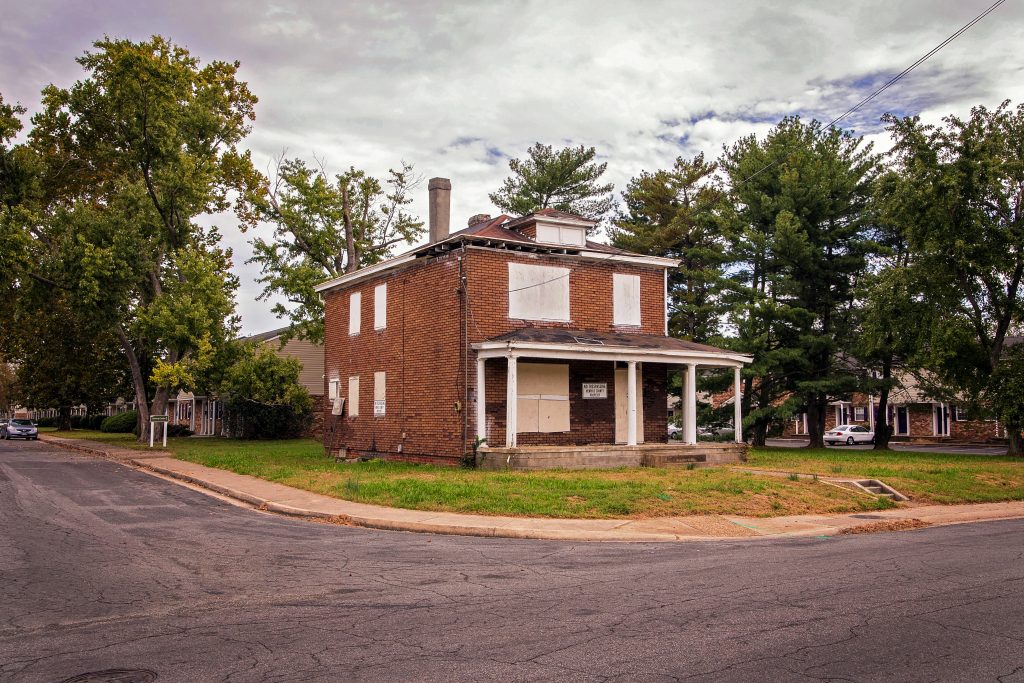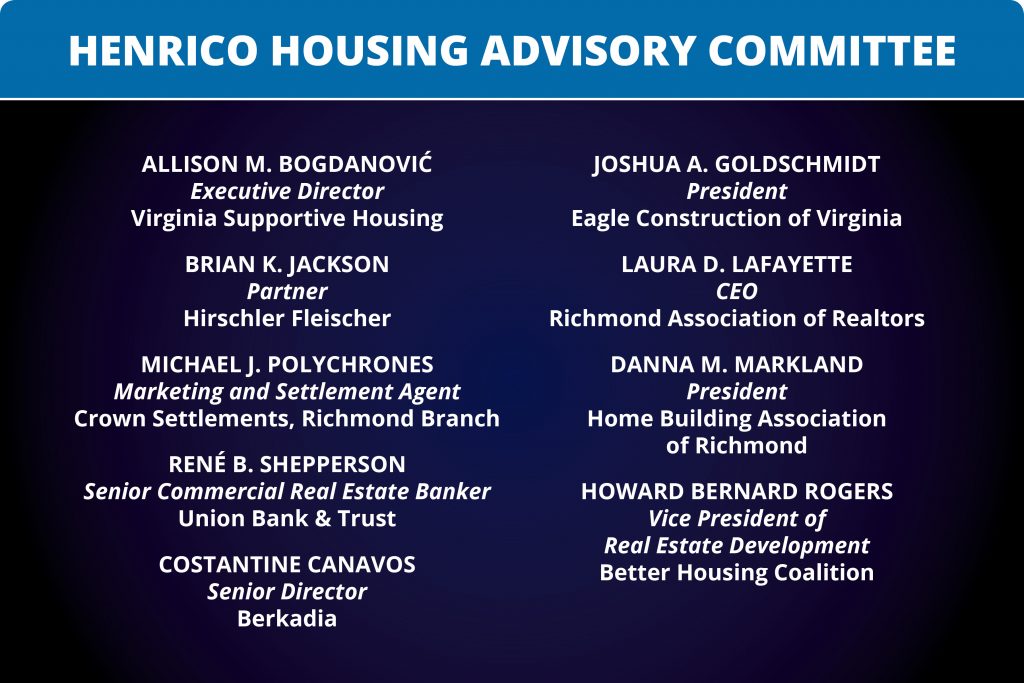Henrico is tapping local expertise as it expands and sharpens its focus on improving the county’s housing stock, its affordability and neighborhoods.
The Board of Supervisors in April established the Housing Advisory Committee and appointed its first nine members, who will serve staggered terms through 2020 or 2021. The members offer broad experience in housing issues, including for-profit and nonprofit development, home building and sales, commercial lending and law.
The committee is expected to add a 10th member and will meet quarterly, beginning in July, said Eric S. Leabough, a housing specialist in the County Manager’s Office.

The committee will function as a “think tank” and offer input and recommendations on housing issues, strategies, goals and policies. For example, it’s expected to provide feedback as Henrico updates its zoning and subdivision ordinances and explores ways to promote reinvestment in aging neighborhoods.
“This committee also will look to identify innovative resources to help improve the living conditions for residents of older apartment complexes,” Leabough said. “Many of these communities were built decades ago, and they have a long list of needs due to deferred maintenance.”
Henrico has taken steps over the past year to address housing challenges in the community. The issue was triggered when new owners of the Essex Village apartments sought support for a financing plan that would include renovations to the federally subsidized complex.
Citing persistent building code violations and poor maintenance at the complex, Henrico officials withheld their backing until the owners formally agreed to conditions to improve the 496-unit complex, now named St. Luke Apartments.
“Residents say conditions are better than they were before,” Leabough said. “The owner has verbally committed to the improvements that we’ve asked for, but we have to make certain that they obtain the financing needed to pull it off.”
Since focusing on the needs at St. Luke Apartments, Henrico has taken similar stances to seek improvements at the Hope Village and Henrico Arms complexes. Now, when property owners seek community support for financing plans, Henrico insists on agreements that spell out expectations and provide opportunities for routine inspections, Leabough said.
Henrico’s efforts on housing also have included:
- The creation of the housing specialist position and Leabough’s hiring in June 2018. He had served as the Varina District representative on the Henrico Planning Commission and managed housing programs and redevelopment initiatives for the Richmond Redevelopment and Housing Authority and the Virginia Department of Behavioral Health and Developmental Services;
- The establishment of a community revitalization fund, which was seeded with $2 million in fiscal 2018-19. The fund is designed to help acquire strategic properties and address other needs, particularly when the market is unable to address housing issues on its own. So far, $142,000 has been spent;
- The purchase and demolition of a boarded-up home at 3807 Delmont St. The blighted property, just off Laburnum near St. Luke Apartments, had been vacant and the source of numerous complaints and calls for service by police. Henrico may eventually look for a development partner to build a home on the lot for a first-time buyer, Leabough said;
- The purchase of a vacant home at 120 N. Holly Ave., which is being renovated by Project:Homes for eventual sale; and
- The planned purchase of a home at 225 N. Ivy Ave., which will allow Richmond Habitat for Humanity to make improvements for eventual sale to a first-time buyer.
The homes on Holly and Ivy are several blocks from each other in Highland Springs. Henrico has concentrated its investments, to the extent possible, to deliver maximum impact, Leabough said.
“The purpose is to improve the community’s housing stock and create an opportunity for homebuyers to move back,” he said.
Henrico also will be seeking to address housing affordability through a regional housing initiative and a potential partnership with the Maggie Walker Community Land Trust. Similarly, Leabough is working with the county’s advocate for the aging to look at affordability issues with older residents, who can be challenged following the death of a spouse or by rising medical expenses.
“Those are the stories that people are not hearing enough when we’re talking about affordable housing,” he said.








